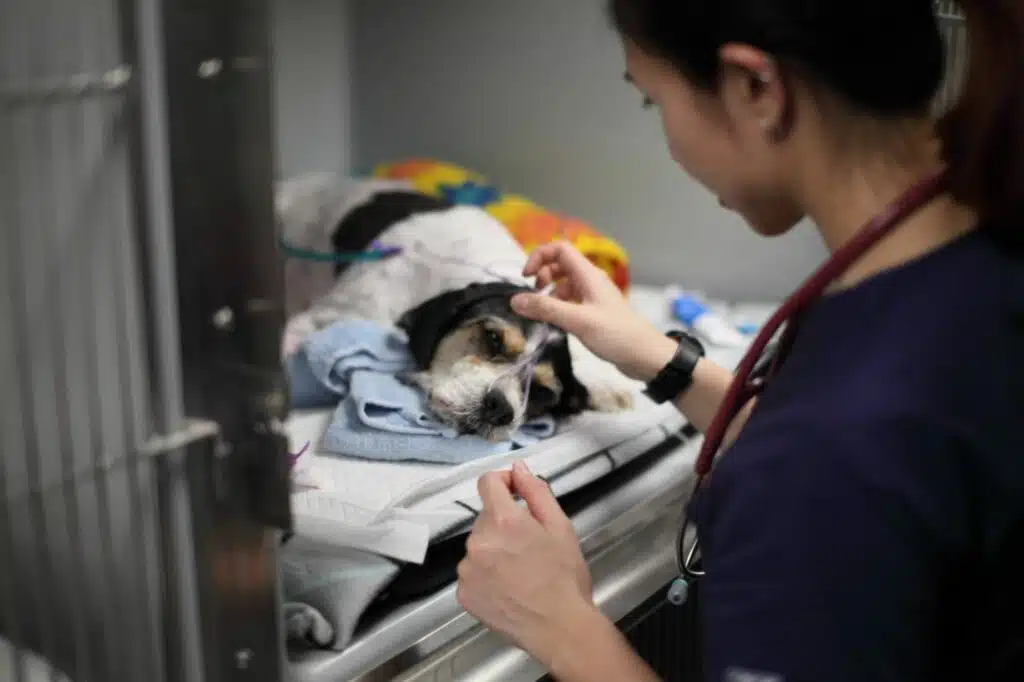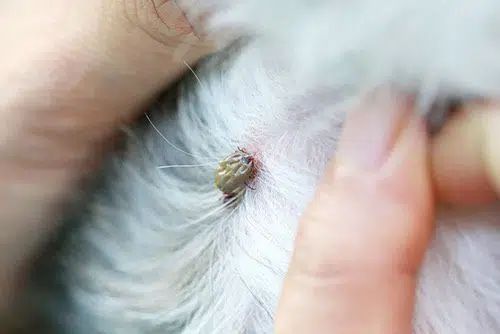In the ever-evolving landscape of veterinary medicine, a new concept is emerging: “open hospitals.” This innovative approach aims to transform the traditional veterinarian-client relationship by promoting transparency, collaboration, and client involvement in the treatment process. In open hospitals, clients are not just passive recipients of information; they are active participants in decision-making, empowered with knowledge to make informed choices about their pet’s care.
At the heart of the open hospitals model is the belief that by involving clients in the treatment process and valuing their input, we can enhance the overall quality of care provided to all animals and ensure the best possible patient outcomes. With our purpose-built hospitals at Perth Veterinary Emergency Cannington, and a new open hospital design at Animal Emergency Service Hawthorn East coming later this year, let’s explore the benefits of how this can make a positive impact towards veterinary care.
Benefit #1 – Increased Client Engagement
One of the key benefits of the open hospitals model is the promotion of increased client engagement. Unlike traditional veterinary practices where clients are often seen as passive recipients of information, open hospitals actively encourage clients to become more involved in the treatment process of their pets. This approach recognises that pet owners are not only emotionally invested in their animal’s well-being but also have valuable insights and observations about their pet’s health and behaviour.
By establishing a culture based on collaboration, this empowers clients to play a more active role in decision-making regarding their pet’s care. This can take many forms, from discussing treatment options and potential outcomes to being involved in the development of a personalised care plan for their pet.
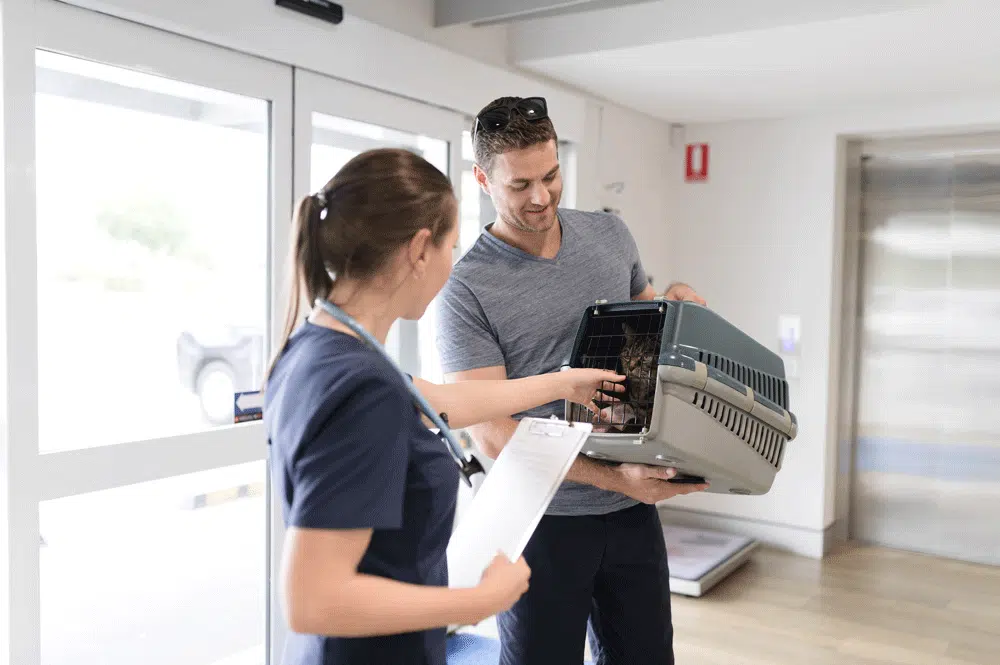
The result of this increased client engagement is a more involved approach to veterinary care. Clients feel more connected to their pet’s treatment journey, leading to a stronger sense of ownership and responsibility for their pet’s health. This not only improves client satisfaction but also has the potential to enhance patient outcomes by ensuring that pets receive the care and attention they need to thrive.
Benefit #2 – Open Hospitals Improve Communication
In the context of open hospitals, communication is not just about conveying information; it is about building understanding and trust, building trust, which helps clients make informed decisions about their pet’s care. Unlike traditional veterinary practices where communication may be limited to brief consultations, open hospitals prioritise clear, open, and ongoing communication between veterinarians and clients.
One of the key aspects of improved communication in open hospitals is transparency. Veterinarians strive to provide clients with a comprehensive understanding of their pet’s condition, treatment options, and expected outcomes. This transparency extends to discussing the costs involved in treatment, ensuring that clients are fully informed and can make decisions based on their financial situation.
Improved communication in open hospitals leads to better understanding, increased trust, and a more collaborative approach to veterinary care. Through open and transparent communication, veterinary teams can enhance the client experience and improve patient outcomes.
Benefit #3 – Better Compliance
One of the key benefits of the open hospitals model is its ability to improve client compliance through increased understanding and engagement. When clients are actively involved in the decision-making process and are provided with clear explanations of treatment options and expected outcomes, they are more likely to comply with the recommended course of action.
This is because they have a better understanding of the rationale behind the recommendations and feel more confident in their ability to follow through with the prescribed treatment plan. By improving client compliance, open hospitals can have a positive impact on patient outcomes. Pets are more likely to receive timely and appropriate care, leading to faster recovery times and improved quality of life.
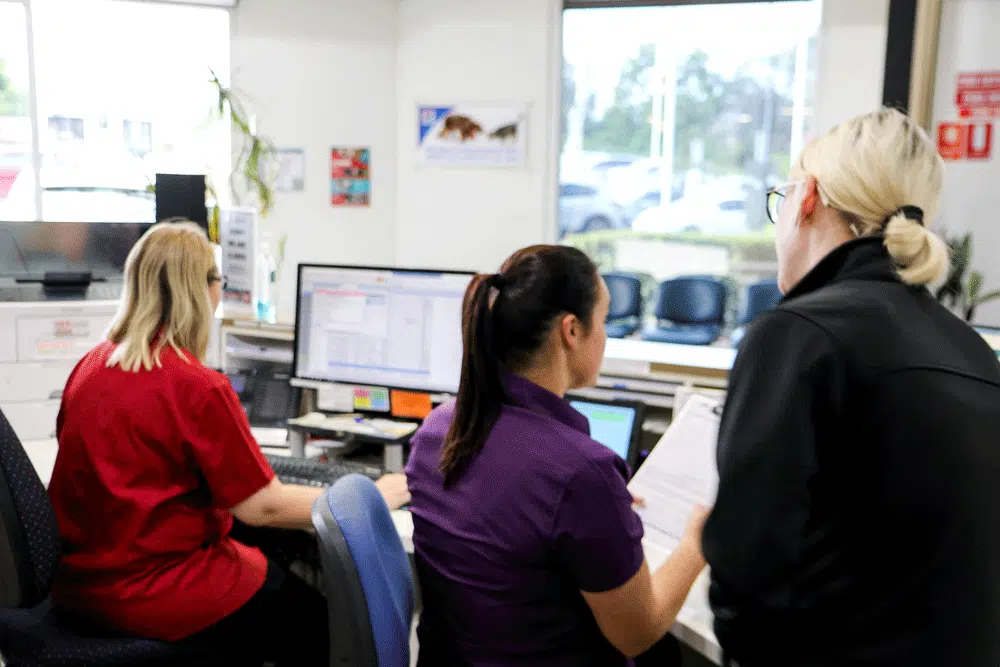
Additionally, better compliance can help prevent the development of more serious health issues that may arise from untreated or poorly managed conditions. By empowering clients to take an active role in their pet’s care, open hospitals are changing the way veterinary medicine is practised, with a focus on improving the health and well-being of our animal companions.
Benefit #4 – Open Hospitals Lead to Enhanced Trust
Enhanced trust is a cornerstone of the open hospitals model, representing a fundamental shift in the veterinarian-client relationship. In open hospitals, trust is not assumed but actively cultivated through transparent communication, collaboration, and mutual respect.
One of the key ways in which open hospitals enhance trust is by involving clients in the decision-making process. By providing clients with all relevant information about their pet’s condition, treatment options, and expected outcomes, veterinarians empower clients to make informed decisions about their pet’s care. This transparency builds trust by demonstrating that the veterinarian has the pet’s best interests at heart and values the client’s input
With an emphasis on transparency, open hospitals lead to enhanced trust between clients and veterinarians. This trust is not only beneficial for the client-veterinarian relationship but also has a positive impact on patient outcomes. Clients who trust their veterinarians are more likely to follow through with recommended treatments, leading to better outcomes for their pets.
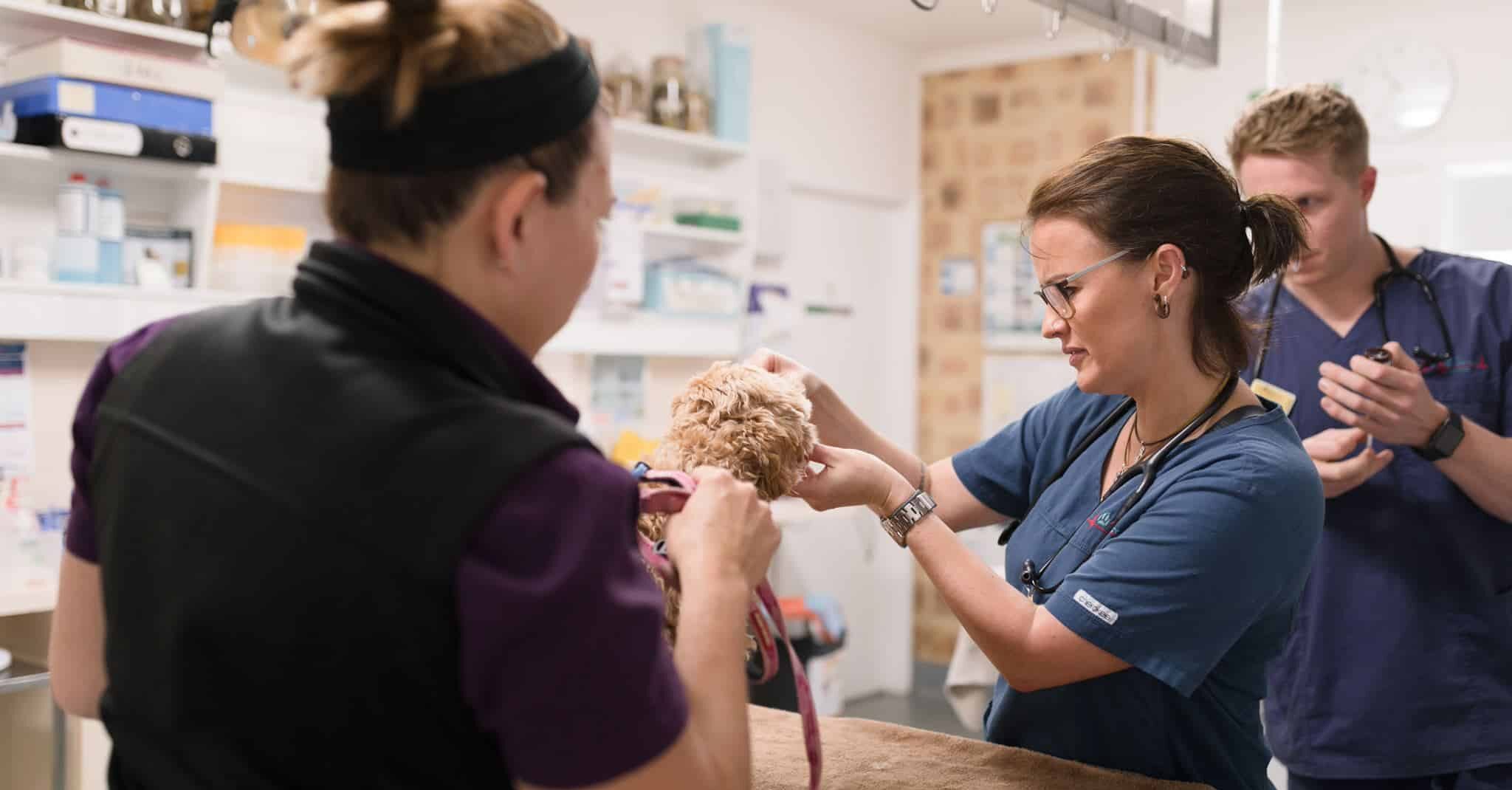
Benefit #5 – Positive Impact on Patient Outcomes
Most of all, open hospitals have a profound positive impact on patient outcomes – all aspects of this new model are designed to create an environment that fosters better health outcomes for pets. With more involved clients and better adherence to treatment plans, this proactive approach to care can lead to earlier detection of health issues, faster intervention, and better overall management of chronic conditions.
By empowering clients to make informed decisions about their pet’s care. This leads to more effective treatment plans tailored to the specific needs of each pet, resulting in better outcomes. Providing a more involved environment ensures that clients feel comfortable discussing their concerns and seeking advice from the veterinary team.
All these benefits combined can offer a transformative effect on patient outcomes. By prioritising collaboration, communication, and trust, open hospitals are able to provide more effective and personalised care for pets, leading to improved health outcomes and a higher quality of life for all animals.
The open hospitals model represents a new era in veterinary care, characterised by transparency, collaboration, and client empowerment with the combined goal of providing the best possible patiant outcomes. Although embracing this model may be challenging at first, veterinary practices can provide the highest standard of care for their patients, ensuring that pets receive the best possible treatment and support from their dedicated veterinary teams.


